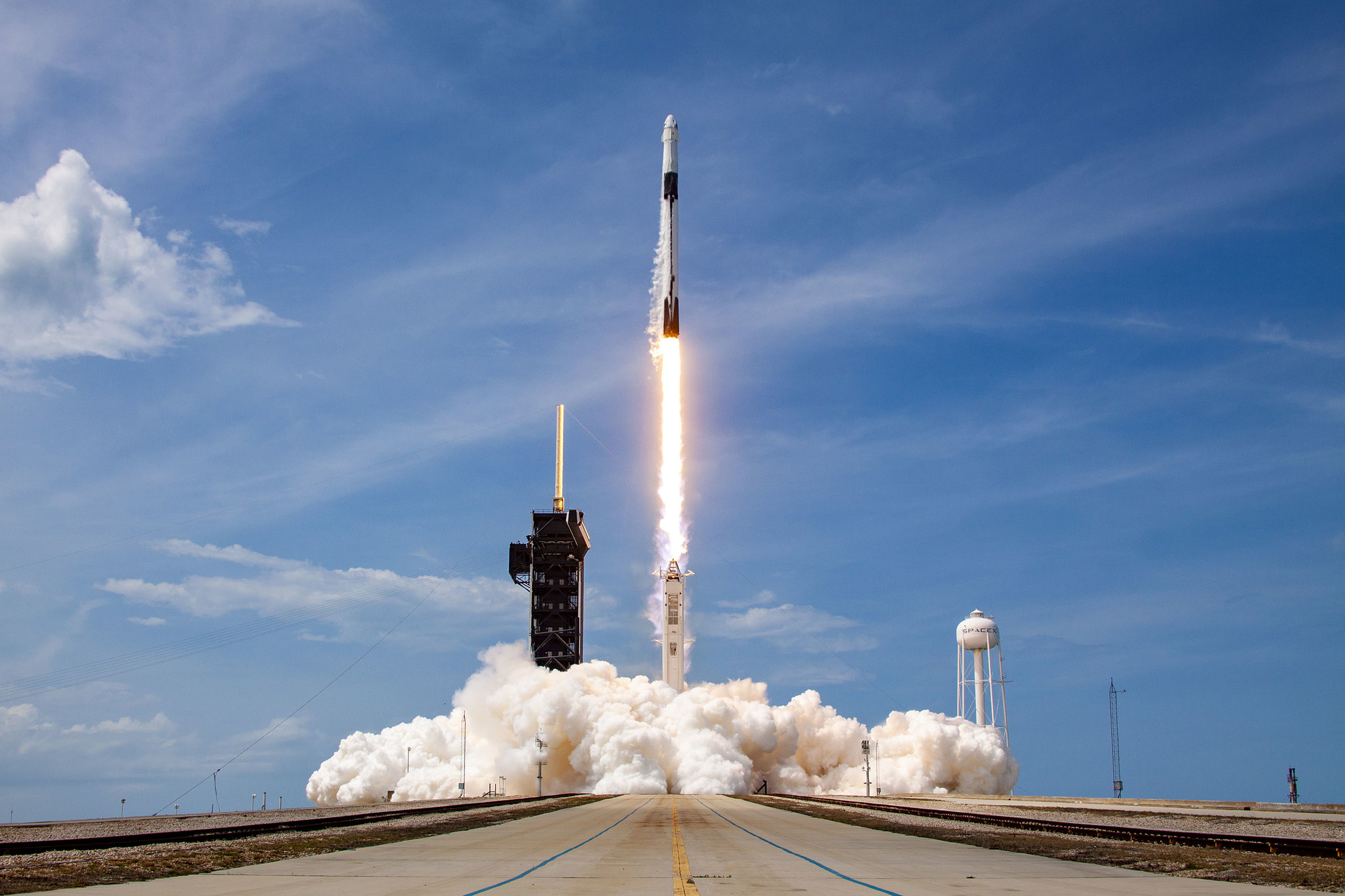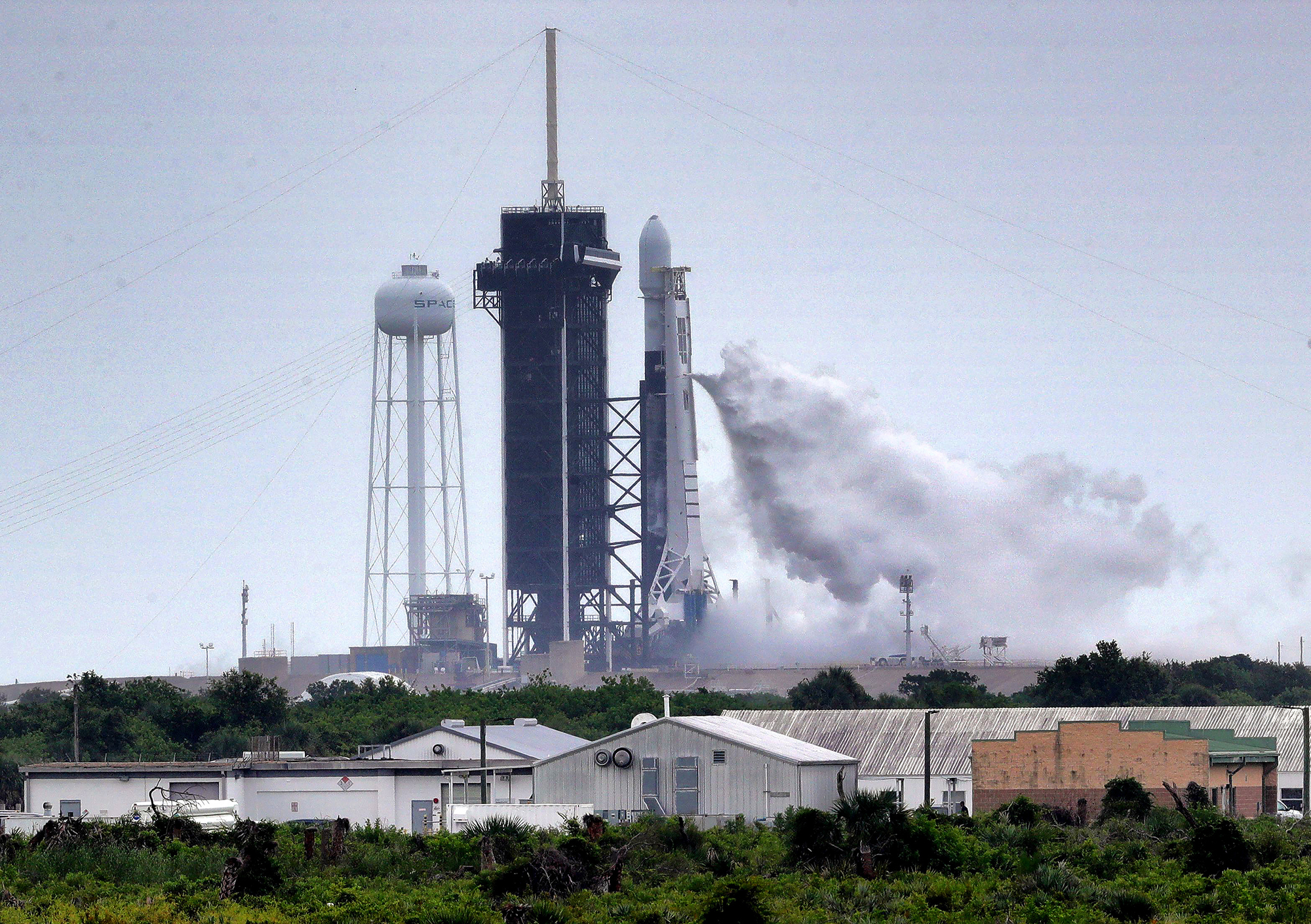SpaceX delays launch of South Korean military satellite to perform rocket checks
"We're being extra paranoid," Elon Musk says.

Breaking space news, the latest updates on rocket launches, skywatching events and more!
You are now subscribed
Your newsletter sign-up was successful
Want to add more newsletters?

Delivered daily
Daily Newsletter
Breaking space news, the latest updates on rocket launches, skywatching events and more!

Once a month
Watch This Space
Sign up to our monthly entertainment newsletter to keep up with all our coverage of the latest sci-fi and space movies, tv shows, games and books.

Once a week
Night Sky This Week
Discover this week's must-see night sky events, moon phases, and stunning astrophotos. Sign up for our skywatching newsletter and explore the universe with us!

Twice a month
Strange New Words
Space.com's Sci-Fi Reader's Club. Read a sci-fi short story every month and join a virtual community of fellow science fiction fans!
CAPE CANAVERAL, Fla. — SpaceX postponed the upcoming launch of a South Korean military satellite Monday (July 13), due to hardware issues with the Falcon 9 rocket.
The California-based rocket builder planned to launch South Korea's first military satellite, called Anasis 2, from Space Launch Complex 40 at Cape Canaveral Air Force Station in Florida on Tuesday evening (July 14). The Falcon 9 was scheduled to take off during a 4-hour window that opened at 5 p.m. EDT (2100 GMT).
However, on Monday afternoon, the company tweeted that it would postpone the launch to conduct check outs of the rocket's second stage and potentially swap out hardware. A new launch date and time still needs to be confirmed with the Eastern Range, which oversees all launches along the East Coast.
Related: SpaceX launches advanced GPS satellite for US Space Force, sticks rocket landing
Standing down from tomorrow’s launch of ANASIS-II to take a closer look at the second stage, swap hardware if needed. Will announce new target launch date once confirmed on the RangeJuly 13, 2020
We're being extra paranoid. Maximizing [the] probability of successful launch is paramount.
Elon Musk
"Standing down from tomorrow's launch of Anasis-II to take a closer look at the second stage, swap hardware if needed. Will announce a new target launch date once confirmed on the Range," the company wrote on Twitter.
SpaceX test fired the Falcon's first stage over the weekend as part of a routine static fire test. Everything appeared to go smoothly, and shortly after the test was completed, the company announced its launch plans via Twitter.
The test occurred a few hours after SpaceX postponed the launch of a different Falcon 9 rocket. That booster was set to launch a stack of 57 Starlink internet satellites along with two BlackSky Global Earth-imaging satellites. Scheduled to take off from the company's other Florida launch site — Pad 39A at NASA's Kennedy Space Center — SpaceX called off that launch Saturday morning citing the need for more rocket checks.
Breaking space news, the latest updates on rocket launches, skywatching events and more!
The upcoming Anasis-II mission stars a veteran Falcon 9, which previously lofted two NASA astronauts to orbit on May 30 for the Crew Dragon Demo-2 mission. Adorned with NASA's retro worm logo, that booster carried Bob Behnken and Doug Hurley to the International Space Station less than 50 days ago. It's launch marks another record for SpaceX: fastest turnaround time yet between launches.
If the Falcon 9 rocket had been able to get off the ground on Tuesday, that would have marked 45 days since the booster returned to land. To date, SpaceX's fastest turnaround time has been 62 days.
SpaceX has achieved many milestones in its quest for reusability but it seems to have hit a snag lately with a series of launch delays. At its other Florida-based launch pad, SpaceX has been trying to get the Starlink 9 mission off the ground.
That launch of 57 Starlink internet satellites and two BlackSky Global Earth-imaging satellites was originally scheduled to take off on June 26, however, a series of weather and hardware-related delays has forced SpaceX to put that flight on hold. The rocket featured in that mission will be the company's third booster to fly five times.
Unfortunately, SpaceX has had to hold off on the launch to perform vehicle checkouts on two separate occasions. It's likely we will see it get off the ground after the Anasis 2 mission launches.
SpaceX CEO and founder Elon Musk wrote on Twitter that the company was exercising caution. "We're being extra paranoid. Maximizing [the] probability of successful launch is paramount," he said.
We’re being extra paranoid. Maximizing probability of successful launch is paramount.July 13, 2020
Built by Airbus Defence and Space, the Anasis 2 satellite is the first satellite to launch for the South Korean government and will provide secure communications for the country's military.
Follow Amy Thompson on Twitter @astrogingersnap. Follow us on Twitter @Spacedotcom or Facebook.

Amy Thompson is a Florida-based space and science journalist, who joined Space.com as a contributing writer in 2015. She's passionate about all things space and is a huge science and science-fiction geek. Star Wars is her favorite fandom, with that sassy little droid, R2D2 being her favorite. She studied science at the University of Florida, earning a degree in microbiology. Her work has also been published in Newsweek, VICE, Smithsonian, and many more. Now she chases rockets, writing about launches, commercial space, space station science, and everything in between.

